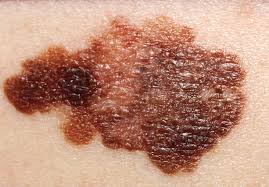A widely prescribed diabetes drug, metformin, may offer unexpected protection against common skin cancers, according to a recent study published in the Journal of Drugs in Dermatology. Researchers have found that metformin significantly reduces the risk of developing two of the most prevalent skin cancers: basal cell carcinoma (BCC) and squamous cell carcinoma (SCC).
The study, led by Dr. Tiffany Libby, an assistant professor of dermatology at Brown University, involved a large-scale analysis comparing over 8,000 patients diagnosed with BCC and more than 4,100 patients with SCC against a healthy control group. The results were striking: people using metformin showed a significantly lower risk of both types of skin cancer, suggesting that the drug may have protective benefits beyond its role in managing type 2 diabetes.
“This study strengthens the evidence supporting metformin’s potential as a protective agent against non-melanoma skin cancer,” Dr. Libby said. The findings contribute to a growing body of research suggesting that metformin may play a role in preventing skin cancer, which affects millions of people annually in the U.S. The American Cancer Society reports that approximately 5.4 million cases of basal and squamous cell skin cancers are diagnosed each year, with basal cell cancer accounting for 80% of those cases.
While non-melanoma skin cancers are rarely fatal, they still pose significant health risks. The study’s results indicate that metformin may be an important tool in reducing the burden of these cancers, especially considering that deaths from these types of skin cancer are responsible for 2,000 to 8,000 fatalities annually.
One of the intriguing findings of the study was that metformin did not seem to offer protection for Black patients against SCC, particularly in areas of the skin that are less exposed to the sun. This could be due to the unique factors contributing to SCC in these patients, such as chronic scarring and inflammation, which metformin may not influence.
The researchers believe metformin’s cancer-fighting properties may be related to its ability to regulate cancer cells’ access to energy and nutrients, block their growth, and promote the death of unhealthy cells. Additionally, metformin enhances the immune response to cancer, reduces inflammation, and inhibits the growth of blood vessels that support tumors.
“Our results suggest that further research may be warranted to consider metformin as a chemopreventive agent,” the study authors concluded. Given its potential to protect against skin cancer, metformin could one day be used not only as a treatment for diabetes but also as a preventive measure for those at risk of skin cancer.
For more detailed findings, the full study can be accessed in the Journal of Drugs in Dermatology (2024). DOI: 10.36849/JDD.8249.












